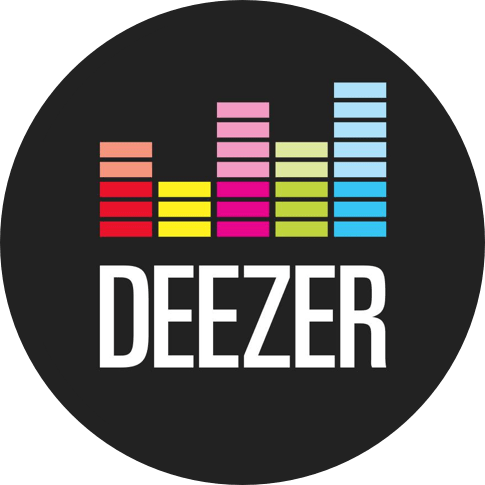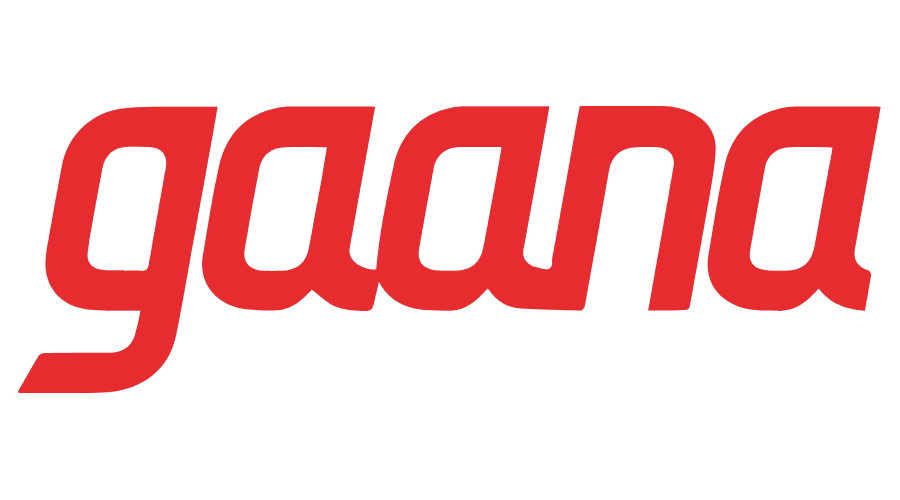How In-House Counsel Can Thrive
with AI with Michael Paik
The Business Simplicity Podcast hosted by Chris Parker
Episode #222 published on 24 July 2025
This episode offers an insightful and empowering perspective on what AI really means for the legal profession. Chris Parker speaks with Michael Paik, general counsel at BABL.ai and founder of GRC Solutions, about how legal teams can use AI to strengthen operations, reduce overwhelm, and step confidently into the future. From risk frameworks to productivity tools to mental models for AI interaction, this conversation is a practical roadmap for legal leaders and rising professionals alike.
Michael brings a rare depth of experience. After a career spanning Wall Street law, Silicon Valley startups, and Korean conglomerates, he now advises global companies on risk management, compliance, and AI audit. He has built legal systems from scratch, trained executives across cultures, and now shapes how organizations embed AI into governance. His approach is deeply grounded in practice and ethics, with a clear eye on the human impact of automation.
Listeners will walk away with actionable ways to explore AI without fear. Michael outlines how new lawyers can quickly understand their organizations, use AI to improve legal operations, and avoid common pitfalls. For senior counsel, he offers frameworks to quantify value, reduce burnout, and build management systems that support safe and effective AI adoption. He also introduces the idea of the “demon cat” as a metaphor for the inherent risk of probabilistic models.
For business leaders navigating growth and regulation, this episode underscores the importance of aligning legal work with strategy and culture. The insights shared reflect a mindset of simplicity, trust, and operational clarity. These are the same principles that drive high-impact engagements at Ebullient. The conversation speaks directly to those designing how legal, technology, and leadership work together.
About the Guest
Son-U (Michael) Paik is a Seoul-based lawyer and technologist. He serves as general counsel at Bobble AI, where he supports AI audit and risk practices, and is the founder of GRC Solutions Korea, which trains organizations in compliance, governance, and legal operations. With experience in law firms, startups, and conglomerates, Michael brings a systems-thinking approach to legal management. He is an advocate for responsible AI adoption and empowering lawyers with the tools and mindset to lead with clarity.
Michael and Chris are both members of the GenAI Circle community: https://www.genaicircle.com/
Contact Details
-
- Linkedin: https://www.linkedin.com/in/sonupaik/
Key Discussion Points
- Why is a risk management system essential for legal teams?: Without systems, legal advice becomes reactive and unsustainable; systems enable clarity, continuity, and value.
- How can junior lawyers use AI to accelerate learning?: Start by understanding the business and clients, then use AI to explore context and processes with structure.
- What does AI mean for legal operations today?: It can automate repetitive work, support vendor management, and improve team morale by creating space for strategic work.
- What is the ‘demon cat’ and why should lawyers care?: It represents the inherent uncertainty in AI outputs; understanding its presence helps mitigate risk.
- How should general counsel think about AI adoption?: Focus on quantifiable value, team productivity, and clear policies; always keep a human in the loop.
- What should never be delegated to AI?: Final legal outputs; lawyers must maintain responsibility and accountability for their professional advice.
- Why is legal education at risk in the AI era?: Overuse of AI can short-circuit mental model development; students need to build discipline before delegation.
Transcript
Chris Parker: This is Chris Parker with the Business Simplicity podcast I am having a conversation with Michael Paik who’s coming in from Seoul in Korea and he is the general counsel for Bobble AI and he’s also the founder and CEO of GRC Solutions which he’s educating organizations on risk management systems and compliance in general and what an incredible wealth of knowledge we really dove into what does AI potentially mean for in-house lawyers in-house counsel and we talked about how it could apply to younger starters as well as the head the GC of organization at a management level and got into some education and what it can really mean for lawyers it was fascinating so Michael what why would this be valuable for people to listen to it?
Michael Paik: So in a nutshell for lawyers in particular I think that hopefully it will provide lawyers with the confidence that they are actually surprisingly competent with AI with a few considerations and deliberations that they need to think about in terms of how they engage with it but because of the way we were trained the work that we do it’s a wonderful new tool and there’s no need to be afraid of it.
Chris Parker: The Business Simplicity podcast where we learn about strategies and tactics to succeed through simplicity with your host Chris Parker. Welcome back to the Business Simplicity podcast this is Chris Parker and I’m having a conversation with Michael Paik who is in Korea in Seoul and he like me is a bit of a portfolio professional where he is involved in a number of things and the two main things is he’s general counsel for Bobble AI which I believe is in auditing and certifying AI systems which I’m sure we’re going to unpack that and see what that means as well as the founder and CEO of GRC Solutions which is a training education consulting and risk management and compliance and so and the invitation today is to start to peel back the onion on what can AI mean for the legal profession and I’m excited about this and to make it a bit more personal we’re going to talk about what this can mean for younger lawyers and one of my sons has the aspiration to be a lawyer and he also has dyslexia so I’m also curious to see how Michael has ideas about that and I’m going to share this with him as a insight into what the future of lawyering of the legal profession can be in the age of AI so I’m just super excited about this but before we get into the content Michael can you share a little bit about what you’re doing with Bobble and GRC and maybe a little bit how did you get there like why are why are you so busy with this stuff because you are extremely passionate and busy?
Michael Paik: I probably should start from the beginning so I studied economics in college studied a little bit of operations research in Japan after college but ended up going to business school after which I went to law school but I went to law school with the business school mindset kind of a management mindset and as many of your listeners may know law schools primarily teach kind of a guild approach towards litigation and it’s not really applied in terms of corporate transactions and what businesses need so you have to figure that out after you leave so I started practicing in New York on Wall Street in kind of the junk bond high yield debt market and then went to California back in 98 with the first dot-com boom and that was in Palo Alto Silicon Valley for a while before returning to Korea I couldn’t find work in venture capital which was my focus in Silicon Valley so I started pivoting to developing risk management systems for large Korean companies so tires to begin with shipbuilding steel most recently and so this was kind of a sweet spot for me in that ultimately you’re developing risk management systems with the focus on legal and so that’s what I did for 20 years upon returning to Korea and part of that was learning about different systems for doing so whether it’s COSO or ISO or in one case it was governance risk management and compliance as developed by this group out of Arizona the Open Compliance and Ethics Group and that’s what I’m working with and representing at GRC Solutions Korea so we do training in those governance risk management and compliance and that’s very necessary here in Asia for reasons I’m happy to get into and then AI came around so 2-3 years ago I started working playing around with AI personally and then developing AI apps for risk management and compliance stuff that I knew how to do and that developed into the stage where I wanted to sell those apps to other people other companies and then I was running up against a lot of procurement and compliance questions stuff that I would have asked if I was still in-house and I didn’t have good answers for that in terms of risk and compliance related those to those apps and so that’s how I ended up studying and working in AI audit so I started taking all these courses and Bobble had some great courses and I got qualified as an auditor and I like these guys so much I joined them so that’s kind of the long route that I took towards this it connects in my mind it’s more and more focused but it’s all about risk and compliance whether it’s with regard to AI or human resources.
Chris Parker: Thanks Michael can you unpack a risk management system for because I have it in my mind what that means but can you describe that in a bit more detail so people have an idea of what that’s all about?
Michael Paik: Sure I mean this is a big topic in and of itself but basically focusing on lawyers for example most lawyers are well trained to opine on particular laws or regulations the impact of a particular decision kind of boundary conditions and that’s very helpful as advice and I’m distinguishing from the litigation process but in the corporate transactions and corporate practice a lot of it is advice And this is what law firms tend to provide and what you really need in-house is a system to act upon that advice and evolve as conditions change so this is a management system so everybody has a system finance has a system procurement has a system legal needs a system but historically it was quite ad hoc and the people that came into this as professionals were trained otherwise and so the management mindset of developing a system so that the system works no matter who is tasked to it you have people come and go right the people that are working in your team will come and go and the system needs to evolve but the management system is really kind of the core of modern entities and enterprises and so this plugs into other units overall governance and other systems within the company but if you don’t approach it as a management system then it really just becomes a lot of blah blah blah advice and that’s the problem.
Chris Parker: Clarify system you’re not talking about like an IT solution system as an operator?
Michael Paik: It can be part of it but ultimately it’s the way resources are organized to get stuff done over and over again.
Chris Parker: Yeah like an operational system. Yeah an SOP yeah in my experience having been in IT leadership for banks so highly regulated the governance and compliance system and for me the way I describe that is like people process technology and data synced up and designed to achieve an outcome with efficiency and a high level of performance.
Michael Paik: Indeed you have a number of dimensions to that like what we talk about is like the first second and third line of defense so the first line of defense is having the policies and having those embedded in SOPs so make sure the general people in the organization aren’t doing stupid things or not doing compliant things and then in second line is an internal audit function and the third line is the actual external auditor or the regulator and because it’s such a formally regulated environment we maybe it’s easier to have a risk management system in that place as opposed to organizations that are not externally mandated but still need such a thing for all the right reasons that like oh we’ve got to get our act together for I don’t know GDPR EU AI act or what are the other and it doesn’t have to be legislative it could just be it’s smart to do it it’s wise manage your business AI whatever is coming trade risk management and there are many ways to cut it right so COSO has a system ISO 31,000 is a nice risk management system the point is that you need a system it can be simple as something that you diagram out and work out on a bespoke basis but going back to my experience in Silicon Valley and then here in Korea startups generally don’t have a system when they’re starting right they have different priorities just grow grow grow grow and similarly a lot of large conglomerates in Korea names that you would know grew very quickly in the post-war era post Korean war era looking to government to lead them and support them and so a lot of the risk management was vis-à-vis the government right so lobbying and otherwise getting support and being aware of government priorities as opposed to the history of organizations elsewhere where a lot of it was market driven a lot of lawyers that may sue you for misstatements if you’re a public company and so there are different histories but what happened then was Korean companies that are very large with broad operations globally active had infrastructures for compliance and risk management that were rather inadequate and part of it is also the kind of feudal governance system that we have so owner family a small group of people organized usually a family that is running a large group of companies via cross shareholdings and other mechanisms without really according the proper respect and deference to the minority shareholder and basically a little bit feudal and internally then what happens is all the managers look to the so-called owners and it becomes a political process so your risk management as an executive is really managing your career vis-à-vis the owner and rather than market risk or other transactional risk so that’s changed of course and it’s changing as companies venture out into larger markets and figure out that this isn’t working but there is kind of a bias towards that still so it’s very similar startup practice and large conglomerate practice in Asia more generally.
Chris Parker: So I guess the reason you would have a risk management system is to actually to get away from that personality driven individual driven approach to professionalize it to standardize it and to create a system that is not beholden politically right now. Now if we take this a bit further and the topic of the conversation is the impact of AI on lawyers particularly in-house lawyers. Why is this particularly this topic a passion for you?
Michael Paik: So given all this background on law firm lawyers versus in-house lawyers and the difference between them of course there are exceptions but for in-house lawyers they’re tasked with so many things on an ongoing basis and whether you’re a sole practitioner handling the whole small company or you’re in a team but the company has lots of operations and you specialize in a particular function ultimately the systems are developed and you need to do this repeatedly efficiently for your internal clients using sometimes outside resources such as counsel from law firms accountants and other specialists but it’s a management function so legal risk management inside of companies is not pure lawyering it is in fact management and so this is the big distinction that I’d like to make for in-house practice and so you can specialize in particular things like trade compliance and be an expert lawyer in that regard but you’re going to have to work within the organization via a system and that’s going to be a management system and so this opportunity with AI is to address the management system so I set aside the legal AI for legal applications right so case law and then precedent and contract drafting just looking at the management system there’s a lot of what we call legal operations that can be handled by AI freeing the lawyer who has typically not been trained for this stuff to focus on what he or she has been trained to do more intensively so all the paperwork your colleague reviews all the budgeting all the KPIs all of the stuff that any other team in the company generally needs to do as part of its operations that can be handled very well with AI and for legal in particular this is very nice because we have a lot of outside vendors and parties that we work with we have lots of transactions going through lots of documents AI can be very helpful in this regard so I think AI contrary to what’s portrayed in a lot of the LinkedIn posts and on the media yes there are problems with hallucinations but not all lawyers are litigators actually for the vast majority of us we don’t ever go to court right and for in-house people it doesn’t make sense to go to court that you’re on a different schedule you have you can contract that out so the process management the process of a litigation or the process of a trade dispute or training for your procurement teams regarding antitrust all of this stuff can be helped with AI.
Chris Parker: So if you were speaking to a and let’s answer it in two phases a young just starting in-house lawyer and then we’ll talk about a senior so manager the head of legal for an organization for this new entrance into a company maybe first job what would be one or two or three start here things for you just to improve your operational management productivity not making perhaps legal decisions for you but where would be the best place to start just to put your finger in the water?
Michael Paik: That’s a great question because you can do this at an individual level or at a team level right so if you’re onboarding a new lawyer the first thing he or she should do is understand the organization the business of the organization and in the old days we used to read if it was a public company 10-Ks right and other disclosures IPO documents different public disclosures that were kind of quality controlled with 10b-5 which is material omissions and misstatements rather quality controlled data that you could it was compressed and well written so you could kind of acclimate yourself to the business very quickly then of course the industry right the competitors the competitive landscape so ultimately you’re a business lawyer of course if you’re a nonprofit there’s a little bit of a different context but there’s parallels so understanding the industry and the business and then the processes within the company which are not well understood by many people in the company not just lawyers I went to business school and they never taught about how organizations are actually organized in terms of what does procurement do what does marketing do what does HR do what does compliance do who are trade compliance and what’s quality control all of this stuff needs to be understood by the lawyer because those are your internal clients right you’re advising them on their work enabling them to do better and to take better risks that’s the other second large aspect of is understanding that contrast to academic lawyers or in some cases many law firm lawyers you’re not there to eliminate risk right what you’re doing is you’re helping the organization take better risks in the pursuit of its objectives and so you’re trying to get rid of the bad risks to the extent that you can mitigate them and working with other teams insurance and other mechanisms to enable the organization to pursue those objectives by taking better risks so getting that mindset is very helpful and then thirdly so the first one is downloading as much information as possible secondly taking a different perspective and understanding kind of the holistic purpose of what you’re really doing in this organization and then finally kind of curating your career in terms of specific areas that you may be assigned to right so if you’re with a tech company you may be assigned intellectual property or you may be doing employment HR stuff it depends on the size of the team but really quickly getting acclimated and diving deep to get familiar with what you need not to the level of an expert academic but what’s to the level that’s good enough for the organization in practice and part of that is getting out of your office and reaching out to people and that’s the other part that’s not well taught so talking with other teams having lunch with other teams having coffee with other people going out for a beer whatever it is to understand your internal clients and letting them know that you are there as a service provider right those are the three things I would encourage younger lawyers to do or whatever age you are as you join an in-house team and then as a team that’s also something that you need to think about I have a little matrix for this can I tell you?
Chris Parker: Yeah no yeah oh yeah please.
Michael Paik: So back in the day with Rumsfeld the known knowns the unknown known do you remember this when they were looking for weapons of mass destruction anyway so the context was that but I kind of took that to organize my thinking around how to manage a legal team so at the team level the known are stuff that you already have systems for right how to engage outside counsel for litigation how to deal with particular issues how a contract form management system training for your procurement team these are things that you have already developed the system for the known unknowns are things that you know you need to develop a management system for stuff that you need to train your lawyers as well as your internal clients on right and part of that relates to AI there’s stuff that we already know how to do in terms of creating risk management for AI even though a lot of it is still a black box then for the unknown knowns this is stuff other people in your organization know but the legal team doesn’t and you need to get out of your office walk around and figure out what people know and what their issues are and then you create a system together to manage that issue and then which leaves the hard one the unknown unknowns and a lot of what we see in AI is still out in the unknown unknowns but that doesn’t mean we ignore it right we prepare to become more resilient to whatever risks may be realized so that’s kind of the matrix that I use to organize this work.
Chris Parker: No really smart and I think coming at it from the other side because I have been in many activities that required internal legal support and external legal support on a corporate basis and what I always suggest is like if we’re setting up a new company or new shared service function or doing a massive procurement that there’s probably legal tax procurement involvement don’t wait till the last moment I mean it’s been such a benefit to create the positive relationships because I loved your make better risks as opposed to avoid all. To take better risks is but in order for the in-house legal team to judge that they really need to know the context and the players and so then you also don’t get into an argument about what better means because it’s all a dialogue at some point it’s a decision and usually with unknown unknown dimensions like okay we just don’t know we have to make a decision we have to move forward so it’s a no. And if you were the head of a legal department and you’re applying this framework to that what are just a few things that head of legal could do to step into the age of AI now in order to accelerate performance?
Michael Paik: I mean I’ve served as general counsel for conglomerates with multiple public companies a couple of different times and then I set one up earlier in my career 20 years ago as well so kind of a three-time GC for large companies right it’s a management function right so of course you act as a lawyer and you advise the board and senior executives but you also corral your resources and get things done but with AI there the things that I pointed out with regard to operations right to take care of a lot of the grunt work that will then free your team to either get their other work done more efficiently and simply go home earlier that’s a big one for morale because sometimes you’re not in control of how much you can pay them and how many raises you can get them so the best thing you can do for your team is to let them go home or have some flexibility and also enable their career progression right whether internal to your organization or otherwise but the big benefit to AI I think is to create those efficiencies and to quantify them so you want more budget for your team you want more resources you want more pay you want recognition for your team and that’s all a KPI it’s you can’t leave it as a nebulous oh legal a solid right they’re always there for us how much have you saved them this year right how much have we actually gotten discounts from with regard to external counsel what are operations costs this stuff is eminently for AI is very good with this so using AI to streamline your operations and to do more with less this is not just people but in terms of budget using AI to scrutinize your vendor the bills right why is this here and this is an anomaly and to push back against service providers and really need to manage that very carefully and also demanding that if the law firms are using AI we should share some of those benefits you’re not going to bill us on this hourly billing model if we know that in fact a lot of it was done by AI so a value based approach so it’s a good time to be in house in this regard but finally and most importantly just like the initial for starting for day one lawyer you can use AI to understand your organization better see what more can be done and this is continuing right it’s not only your week one so for the GC it’s really diving deep into the company and seeing what else can be done to help and there’s a limited number of hours in the day so you can speed up that process with AI to better understand what everybody else is doing.
Chris Parker: I absolutely love use it for operational management with another project right now where we’re advising a procurement function of a multinational and we’re just using it to research particularly how what are the current benchmarks of how AI and analytics can support a multi-hundred million procurement team what does that look like how are they organizing how are they planning this so you can also I think just you don’t have to give it any actual internal information you’re just saying hey for a company of this dimension and this kind of thing like well what are people doing and then one thing I didn’t realize is GPT also advised they said well here’s a bunch of benchmark reports out there that I’m drawing from here’s the sources so I was like “Oh well then we can go get those benchmark reports and then use that read them and then use that as a foundation for this quantified advice because we’re talking to the chief procurement officer and that person’s going to need to argue for the funding in the budget.”
Michael Paik: Yeah and what we’re saying is this is a no-brainer but you certainly have to quantify that and do the business case there there are actual processes right so supply chain management supplier code of conduct counterparty due diligence sanctions and export control compliance all of this stuff that needs to get done can be done more easily with less people you’re not going to hire some 50 associate from a law firm to go see each of your suppliers at I don’t know what it is now 600 bucks 800 bucks an hour for a blah blah blah speech right you could just send them a chatbot along with a document then do a conference call and explain to them your supplier code of conduct and that saved you probably thousands of dollars right there for each supplier right so stuff like this I mean there’s a lot of talk about problems with AI and hallucinations and I acknowledge that that’s what I’m doing with audit bias all of this stuff but there’s a lot that still can be done once you understand the probabilistic nature of the outputs of the these models what I call the demon cat from Adventure Time have you ever seen this cartoon?
Chris Parker: No I know Taco Cat.
Michael Paik: Cartoon called Adventure Time and there’s two episodes where the demon cat comes out the demon cat has approximate knowledge of many things not exact knowledge approximate knowledge of many things and so if you add the word probably to that that’s basically what we’re dealing with with regard to LLM so if you understand that there’s a demon cat lurking somewhere in these workflows and you’re just aware of it you can still get a lot done you’re not going to drop a contract in and get an answer out it’s going to have an approximate understanding what you dropped in given parameters prompts and structures around it RAG other documents but at the end of the day the Demon Cat’s still there.
Chris Parker: Let me reach into Schrödinger’s box and grab Demon Cat by the scruff of the neck and pull it out and say “Hey because Demon Cat exists at some moment in there there’s always a probability what should in-house counsel never do with AI let’s look at it the other way like this is an off just don’t do?
Michael Paik: For legal it’s always got to be human in the loop right not simply on the loop it stuff cannot go out without legal signing off at the human level so I don’t think the agents are here yet for legal work.
Chris Parker: Can you so in the loop meaning every word watching all the time every word needs to be read is that?
Michael Paik: Every output every output that goes out your work product and that’s your professional responsibility it’s a licensing requirement in most jurisdictions as well so you need to be responsible for your output so this human in the loop out without your okay is I think a minimum I think it’s also a minimum and a professional responsibility for lawyers to understand how AI works right the demon cat basically and the fact that the demon cat is there in all models so if you look at OpenAI’s service terms if you look at Anthropic service terms if you go into the contract OpenAI and Anthropic’s lawyers have identified the demon cat as a disclaimer on their end right and this is underlying pretty much all models so open source we’ll set that aside because there’s no backstop in some of these in terms of corporate entity service provider and so on from a corporate perspective so individually you may have some different risk tolerances but if you’re going to run this function for an organization of any size you need to very well recognize where the demon cat is and how it’s going to impact your workflows.
Chris Parker: Well based on demon cat terms of service and contracts with these OpenAIs and Anthropics etc what’s your personal principle on putting company information in GPT?
Michael Paik: It’s a very good question especially now because there’s a particular case in New York OpenAI in New York Times where plus and pro accounts they’re holding these these chats and conversations because a judge ordered them to so other than enterprise and education accounts they’re being saved and so this is a large uncertainty.
Chris Parker: Saved and subpoenaed you mean?
Michael Paik: Saved so that if the judge orders in particular litigation you can actually get access to those conversations whether you turned off your save conversation or not whether you’re in anonymous mode or not so this has really put a wrench into particularly OpenAI but this is an open question so I believe that for the time being you need to be very careful and that’s why I focus on operations as opposed to work product for today I think it can be very helpful for anonymized kind of brainstorming research and kind of gathering inputs but I don’t think it’s yet there again contrary to what a lot of service providers that have created these models for sale to legal teams have stated both on the confidentiality because underneath this there’s still the demon cat right so if it’s OpenAI this is a problem and then in terms of the larger picture of kind of over-relying on these technologies unless you have good management systems already in place it’s going to go awry very quickly so and it’s human nature right you want to get things done you have a lot of pressure you’re trying to get work out the door and if you don’t have a quality control system which is a management system around your work product then the tendencies will be to cut corners and if you’re cutting corners the demon cat will show it.
Chris Parker: Well also the level of quality will go down because if you’re just spitting out GPT product without context without crafting without QA yeah you will suffer from that so before we get into the question around like how could we prepare because you mentioned at some point that lawyers need to understand how AI works I’m curious about from an education perspective around lawyers what I often hear and I have mixed emotions about is “Well you can’t use GPT but it’s okay to use Copilot Enterprise it’s safe because it’s Microsoft.” And I’m like “Yep but under Microsoft’s offering if you go deep deep deep to look in the Demon Cat’s still in there.”
Michael Paik: Yeah well yeah the probability error Demon Cat is still there but the technology is the same whether it’s Anthropic or Microsoft there systems put around it boundaries and quality controls but the risk is still there and if you look into their documentation their internal legal teams have identified the risk and have disclaimed it right I mean they’re telling you it’s there you just need to know where to look so you cannot assume that these uncertainties are have been handled but at the same time you can’t wait right you take advantage of these technologies you just need to mitigate against them and the mitigation may not only be a technical mitigation right it may be training your people it may be putting in workflows that have senior kind of persons signing off on this it may be explicitly putting responsibility on people right accountability so for myself too in my custom instructions on all my AI I asked it to remind me at the end of every interaction final liability lies with the human.
Chris Parker: Oh wow with every output because I also tend to human being right so you can move forward with some of this but that last reminder that hey this is it’s on you so the things like this I think are helpful but the education is not only the literacy required by the EU AI act but just understanding a little bit more about how these systems are not simply software in the traditional sense the probabilistic nature the dangers of biases what this potentially means what are the potential consequences and what is what are your companies your employer’s policies on this right and for the employer they need to promulgate those policies and their employees know because if they don’t promulgate policies the employees are already using AI anyways right which they call.
Michael Paik: It’s already happening just. Yeah so they’re going to use it anyway so it’s it’s very important that you educate and I have a I don’t know I hesitate because this is a public podcast but it’s like sex education right so with your children you need to let them know how this all works and not addressing it is not going to make the risk go away so I hope that wasn’t too inappropriate but I.
Chris Parker: You can’t put your head in the ground it’s it’s happening anyways and so you might as well get.
Michael Paik: It’s going to happen anyways so they should understand the consequences the ramifications how to treat this technology with respect people with respect it’s the same idea and so I think that that’s why these management systems are what I keep harping upon because this is all part and parcel of that and ultimately going back to your original question for the GC as the head of that function as a manager as an executive this is his or her primary function in terms of guiding the organization the board and the internal clients towards a better understanding of these technologies and mitigations of these risks now specifically in the context of education maybe for people who are in law school now or aspiring to like my son or if you’re already in the role what would you recommend as far as to up your game now to know the powers and the potentials as well as the risks of this to understand maybe the technology the use cases what do you wish for the legal profession to be educated on related to AI at the moment?
Michael Paik: Okay so I’ll kind of parse it in two ways for the student the temptation as in every other discipline is to use AI to shortcut your education right and to just plow through it very quickly when you’re in law school doing case briefs with AI figuring out the holding with AI and I understand the temptation to do that but the law school or whatever the institutional mechanism in your jurisdiction is the process has been designed to create kind of a way of thinking and a discipline issue rule application conclusion which is the general kind of legal mindset and if you’re going to short circuit that and simply try to get through law school and take the bar exam or whatever the equivalent is in your jurisdiction you’re not going to be prepared for practice because that loop that algorithm actually is not embedded in your mind right so those mental models are not there for you and so if you’re going to try to contract that out to AI you’re going to have the AI lead you by the nose so ultimately for any professional you need to own the mental model you need to own the chain of thought and impose it on the AI lead it use it to augment your thinking and to test your thinking but you need to be driving this and for the students that shortcircuit their education in this way and I get it why you would want to do this because on a day-to-day basis it makes so much sense but looking towards the future you need to put those building blocks into place and then for practice on a professional level many law schools at least in the US are primed to funnel lawyers into law firms and I think young professionals need to look at that very hard because the law firms are set up on a billing model for the most part that is using the associates to bill in a pyramid right and then even if you become partner there’s still basically there are three types of law firm lawyers the finders minders and grinders all associates are by definition grinders finders are the ones who originate clients minders manage right and even amongst the partnership If you’re not if you don’t have a book of clients you’re a grinder you’re basically a glorified associate right or handling administrative work so understanding that ecosystem and what you’re getting into and the fact that if AI is deployed more broadly not only by law firms but by their clients then the grinding function and that billing model is quite tenuous and so they need to think about the business realities of what their profession is and whether it is true remains true that law firms will be a stable path for your career and whether you become partner and then you’ve hopefully you’ll become a finder so you can have clients of your own otherwise if you’re still a grinder then yeah you’re a partner that is really an associate so this kind of business reality and then the opportunities to go in-house I think will become more dear in that it’s going to be very competitive to go in-house because in house there’s a stability there’s other aspects to this kind of.
Chris Parker: Let let me ask a potentially very nasty question before we wrap up but in my world which is technology I have proactively advise my children not to pursue an education in software development and engineering because it’s done ai has disrupted this and that and there’s a whole discussion around that on what does that mean for us but would you recommend people to go into the legal profession is this something that’s still viable or would you do it with certain caveats?
Michael Paik: No I think it is because the legal license is kind of broadly applicable so you can go into litigation you can traditional practice or you can go in-house you can open your own shop you can develop AI software there’s a lot of different things so for example my son is a lawyer in the state government in the buildings department handling sewage and grid connections and I told him basically you’re an AI infrastructure lawyer right water and energy is AI so there’s many ways you can go with law and so that’s the benefit and there’s still some guild protections and so on so barriers to entry but I think the benefit in the age of AI so drilling down to the technology is that lawyers are trained to be wordsmiths right so we’re really good at word association which is what LLMs do so we are natural prompters and we should be able to get the LLMs to do very well once we understand the limitations and parameters of how to work with these LLMs which doesn’t take forever but we’re actually well prepared to prompt as other disciplines may be as well I think there are also benefits to kind of creative creative education and all of this will be augmented with AI coding I’m kind of ambivalent because I’m 55 this year but I’m going backwards because of the AI audit and the things that I’m doing I’m now trying to learn more about computer science belatedly building on kind of operations research linear algebra from 30-some years ago to understand the matrices and so on but if I was a young person starting out I would hedge right do this so computer science minor major philosophy some something broad that really helps you build mental models so that you develop the stubbornness the grit to be able to impose it on an LLM because it’s going to be hard it’s going to be smarter and they’re going to be more more rascally as well as things go on so I think having that discipline philosophy math other disciplines and creative creative endeavors as well because you just think different.
Chris Parker: And creative meaning because this is one of the things with LLM is innovative thought like truly innovative thought is somewhat out of bounds for them because it’s unless it’s a total hallucination and it’s accidental the idea of how to create new value and then use AI and LLM for that I think that the onus is on the user right you have to prompt it in the right way.
Michael Paik: Yeah well the and this is from me for the management flip meaning before managers knew the answers and now the answers are commoditized and so then the question is who’s in the best place to know the question the prompt in order to get the right answer applied to the right situation so and lawyers are particularly good at the questions.
Chris Parker: Yeah no it’s great so it’s like large libraries I don’t know if anybody goes to libraries anymore but large university libraries with millions of volumes you got to find the book so if you have a really good research librarian that you can talk to that will really make a difference but you can’t just wander the stacks.
Michael Paik: No exactly so have some discipline and have a strategy around it and like you said when you’re in law school go through the motion of the work so you build that muscle in your brain to understand the build the discipline.
Chris Parker: Yeah well like I recently with my older son his gaming machine crapped out and we would do the whole process of okay what’s reusable how do you troubleshoot it and the mental process of troubleshooting tech in hardware as well which is hardware operating system application it was great and later he reflected he says like I now look at these machines differently he understands every component piece what the interaction is he understands the logic of deciding how to troubleshoot how to implement what are the different options of swapping things and I know it’s a and I think having that kind of awareness of what LLM can do for you will really be empowering as well.
Michael Paik: And this is for across disciplines right so in ship building you have commissioning this punch list before the system is signed off on understanding that process as a human being enables you then to use AI to make that more efficient right in ship building or steel manufacturing or an artistic endeavor but you really need to build those mental models for yourself so otherwise you’re going to be led by the nose.
Chris Parker: No exactly so understand AI to improve your productivity be the human in the loop because you’re responsible for your output and do all this so you can go home early is what I took from.
Michael Paik: And explore other options right go do yoga or something or interview for other jobs if that’s what you want to do but basically it empowers the human.
Chris Parker: Michael Paik thank you so much for this I will include links to your LinkedIn to Bobble to GRC Solutions all in the show notes and if anyone is really inspired by this well as you can tell what a joy to engage with you and what a source of knowledge and wisdom thank you so much.
Michael Paik: Thank you very much.
Chris Parker: Thank you for listening visit Ebullient.com don’t forget to like and subscribe to the podcast on your favorite player.
Sign up for insights on product leadership, AI transformation, and interim executive effectiveness.
Ebullient needs the information you provide to inform you about products and services to help you succeed. You may unsubscribe at any time. Please review our Privacy Policy for more information.


















